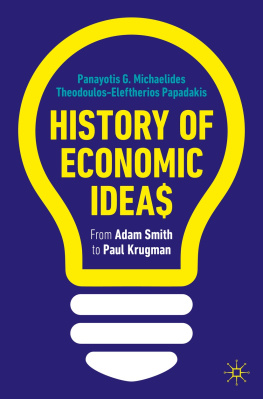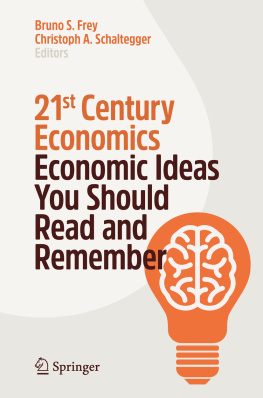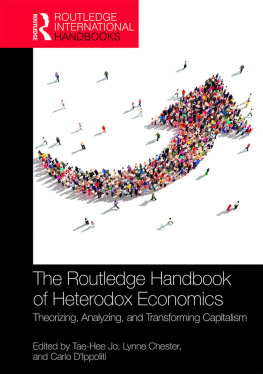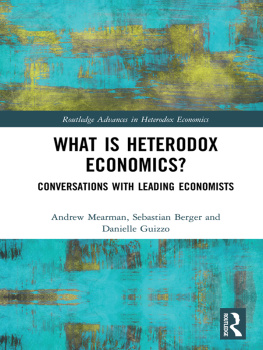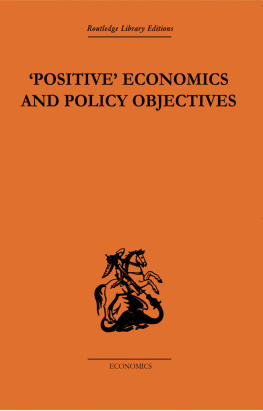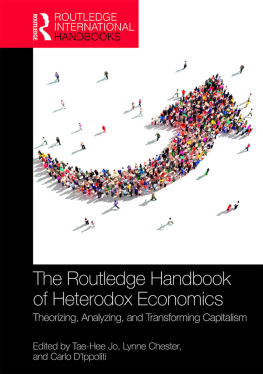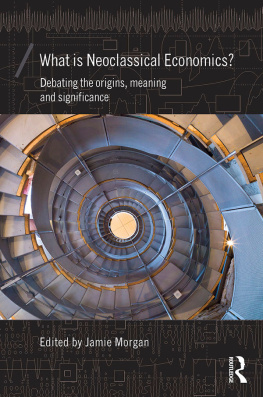Otto Neurath and the History of Economics
Although Otto Neurath left his mark across an array of fields in the first half of the twentieth century, he was trained as an economist and wrote extensively about economics. He questioned the philosophical foundations of economic concepts, the fuzziness of economic terminology, the unwarranted reduction of economic theorizing to matters of price, and the misplaced reliance upon certain quantitative approaches.
This book intends to find a place for Otto Neurath in the history of economic thought by examining and analyzing his economic ideas, both on their own terms, albeit with a critical perspective, and in the broader context of their impact. Neurath may be seen as a pioneer in posing ideas and approaches now considered heterodox.
This book will be of interest to students and researchers of the history of economic thought, and especially those interested in the evolution of heterodox economics in the twentieth century.
Michael Turk is professor emeritus in economics at Fitchburg State University, USA.
Routledge Studies in the History of Economics
201 Lionel Robbins on the Principles of Economic Analysis
The 1930s Lectures
Authored by Lionel Robbins
Edited by Susan Howson
202 The Foundations of Political Economy and Social Reform
Economy and Society in Eighteenth-Century France
Ryuzo Kuroki and Yusuke Ando
203 Asia and the History of the International Economy
Essays in Memory of Peter Mathias
Edited by A.J.H. Latham and Heita Kawakatsu
204 The Economic Thought of Henry Calvert Simons
Crown Prince of the Chicago School
G.R. Steele
205 The Economic Thought of William Petty
Exploring the Colonialist Roots of Economics
Hugh Goodacre
206 Greed in the History of Political Economy
The Role of Self-Interest in Shaping Modern Economics
Rudi Verburg
207 Aristotles Critique of Political Economy
A Contemporary Application
Robert L. Gallagher
208 Otto Neurath and the History of Economics
Michael Turk
For more information about this series, please visit www.routledge.com/series/SE0341
First published 2018
by Routledge
2 Park Square, Milton Park, Abingdon, Oxon OX14 4RN
and by Routledge
711 Third Avenue, New York, NY 10017
Routledge is an imprint of the Taylor & Francis Group, an informa business
2018 Michael Turk
The right of Michael Turk to be identified as author of this work has been asserted by him in accordance with sections 77 and 78 of the Copyright, Designs and Patents Act 1988.
All rights reserved. No part of this book may be reprinted or reproduced or utilised in any form or by any electronic, mechanical, or other means, now known or hereafter invented, including photocopying and recording, or in any information storage or retrieval system, without permission in writing from the publishers.
Trademark notice: Product or corporate names may be trademarks or registered trademarks, and are used only for identification and explanation without intent to infringe.
British Library Cataloguing in Publication Data
A catalogue record for this book is available from the British Library
Library of Congress Cataloging in Publication Data
Names: Turk, Michael H., author.
Title: Otto Neurath and the history of economics / Michael Turk.
Description: London ; New York : Routledge, 2018. | Series: Routledge studies in the history of economics ; 208 Identifiers: LCCN 2018002011 (print) | LCCN 2018004377 (ebook) | ISBN 9781315188683 (Ebook) | ISBN 9781351743846 (Pdf) | ISBN 9781351743839 ( Epub) | ISBN 9781351743822 (Mobi) | ISBN 9781138732032 (hardback)
Subjects: LCSH: Neurath, Otto, 1882-1945. | Economics--History. | Economics--Sociological aspects--History.
Classification: LCC HB101.N48 (ebook) | LCC HB101.N48 T87 2018 (print) | DDC 330.092--dc23
LC record available at https://lccn.loc.gov/2018002011
ISBN: 978-1-138-73203-2 (hbk)
ISBN: 978-1-315-18868-3 (ebk)
I would like to thank Cambridge University Press, holder of the copyright, for granting permission to reprint as one of the essays in this work the article entitled, Otto Neurath and the Linguistic Turn in Economics, which first appeared in the Journal of the History of Economic Thought, in September 2016, Volume 38, Issue 3, pages 371389.
The translation of materials from German into English was performed largely through the work of others, so noted in the lists of works cited. The exceptions occur when the work is cited in the original German, in which cases the translations are my own.
In the first decades of the twentieth century a new leading pathway in economics emerged, largely defined and delimited by what has come to be known as neoclassical economics. In the same period Otto Neurath, who wrote extensively about economics, delineated a road in economics not taken by this newly formed mainstream. While more likely lambasted when acknowledged than heralded in his time, Neurath nonetheless posed alternatives about how to think about economics that have a not insignificant resonance today.
The Austrian-born Neurath, who was cast in the tradition of the central European polymath, left his mark across an array of fields in the first half of the twentieth century. He is perhaps best known as one of the leading figures among the Vienna Circle of philosophers in the 1920s and 1930s, spearheading what was termed logical positivism and engaging in the quest for the unity of science.
However, Neurath was trained as an economist and engaged in both scholarly pursuits in economic theory and activist applications of it. Even here he is probably best known as a foil in one of the great debates of the twentieth century over the efficacy of economic planning, as he advocated for and promoted coordinated planning, including the replacement of monetary exchanges with in-kind calculation. His calls in the aftermath of World War I for the socialization of the economy, linked to the widespread use of in-kind calculation, were met with strong rebuke from both Max Weber and economists from the Austrian school, as well as from Austrian socialists.
Yet his often unorthodox economic ideas and approach extended further, to include questioning the philosophical foundations of economic concepts; the fuzziness of economic terminology; the unwarranted reduction of economic theorizing to matters of price, including the unreflected acceptance of constructs dependent upon the existence of continuous supply and demand functions; the misplaced reliance upon certain forms of quantification; and the alignment of economics with a mechanical model patterned on physics.
In the long view, what import might be derived from Neuraths work in economics, especially in relation to the evolving canons and conventions of economic thought and the discourse these helped shape and inform? In other words, where might one place Otto Neurath in the history of economic thought? This will entail setting his work in both a historical and a philosophical context. It will also involve considering the imprint of his economic ideas and concerns in more contemporary settings, taking into account where he has been recognized as a precursor, but also where he has not.



